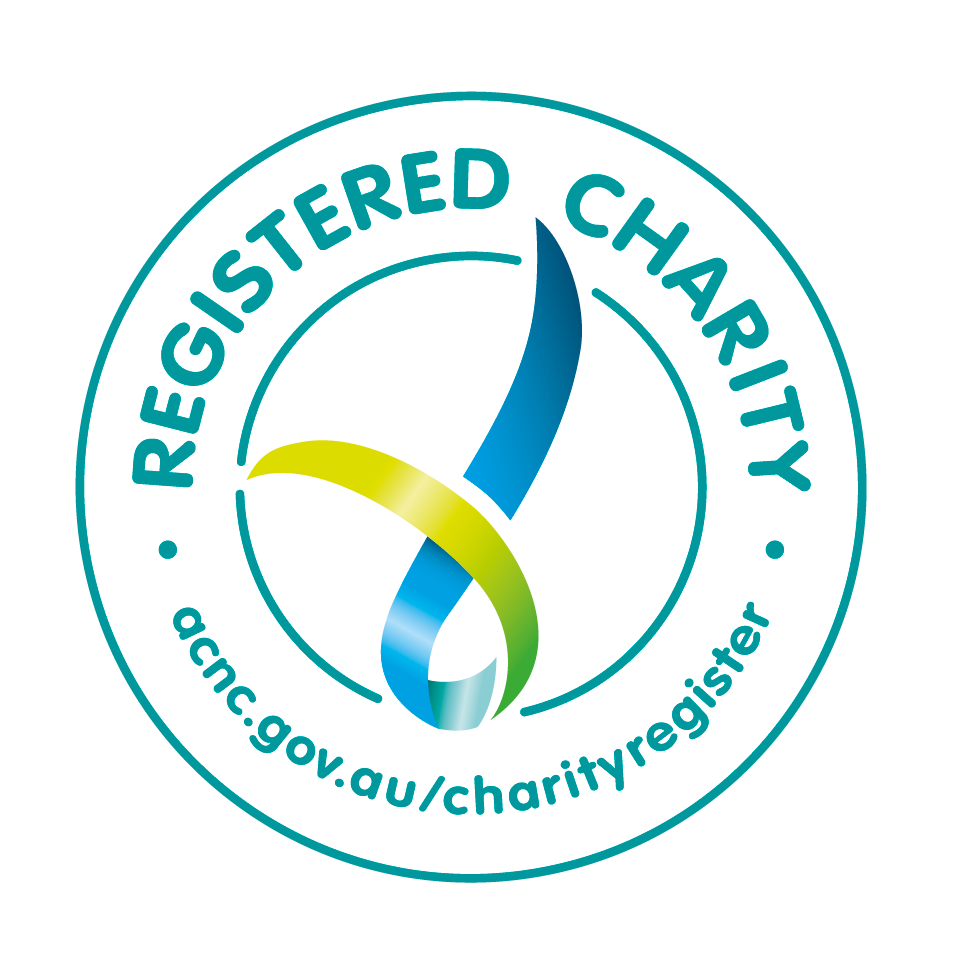We had a heart-to-heart with Buzz, a 22-year-old gamer and member of GenerOZity, about his gruelling experience with acute lymphoblastic leukaemia (ALL) and how a cutting-edge clinical trial saved his life.
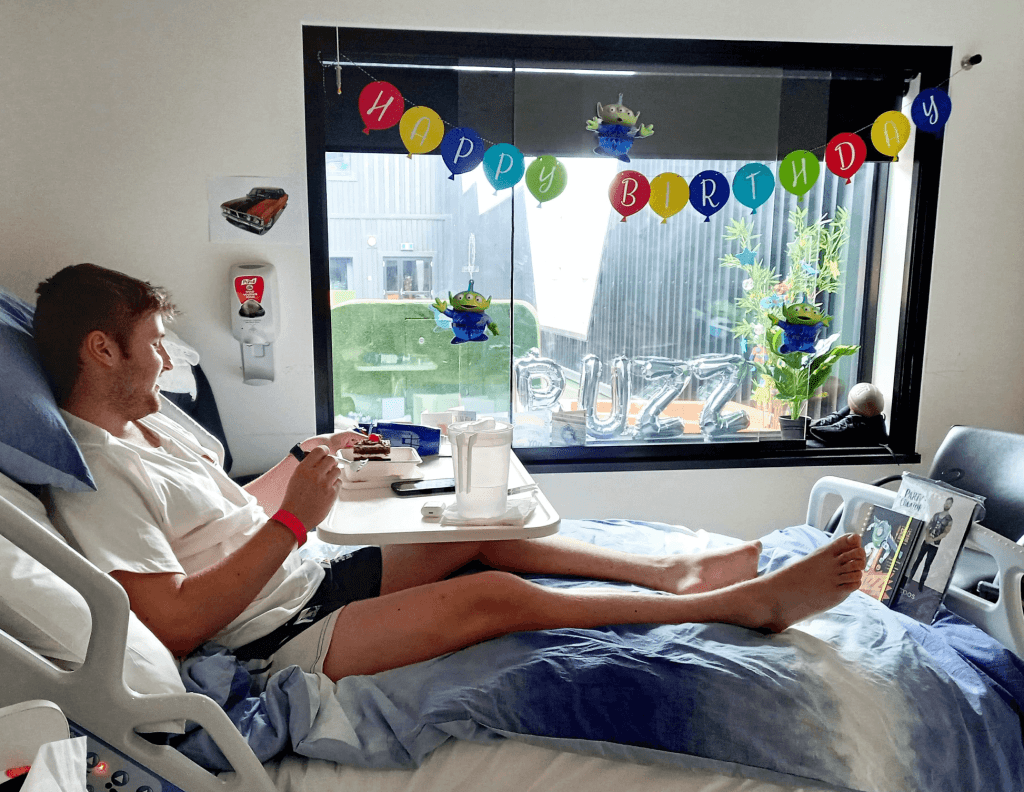
Three years ago, Buzz was diagnosed with acute lymphoblastic leukaemia (ALL) at only 19 years old.
At that moment, his whole world stopped. He sat in that chair with a massive lump in his throat, not being able to utter a single word. He describes that moment as feeling like he had just been shot.
Today, Buzz is cancer-free. He has built a life in Melbourne with his partner and fellow gamer, Ash, and their two dogs, Spud and Goose and cat, Lily. As a member of GenerOZity, a community of content creators who fundraise for charities, he is passionate about using his love for gaming to raise funds for cancer research.
He credits his recovery to a cutting-edge phase 2 clinical trial for acute lymphoblastic leukaemia in which Dr Ashley Ng, a Cure Cancer alumnus played a pivotal role.
A World-Shattering Diagnosis
In 2020, Buzz had been sick for more than 2 weeks and had lost consciousness on multiple occasions, including in the shower. He had suspected he had COVID, but kept testing negative. It was difficult obtaining a diagnosis due to the lack of in-person appointments, but he insisted on getting bloodwork done at Bendigo Hospital.
“I have photos from right before I got diagnosed whilst on the way to the hospital. I look back on them now and it’s quite scary,” he said. “In the moment, you look at yourself in the mirror and you don’t realise how sick you really are. I looked like a shrivelled up prune. The bags under my eyes were horrific. If it weren’t for COVID, it could have been caught a lot sooner.”
When Buzz received his world-shattering diagnosis, he learnt that almost all of his white blood cells had become cancerous.

“By the time I got there, I had hundreds of notifications on my phone from family and friends. I finally realised this was real. It all started to slowly seep in that something big was happening and I didn’t have the answers about how it was gonna go.”
A Spark of Hope: The Clinical Trial
Acute lymphoblastic leukaemia (ALL) is a common, yet aggressive blood cancer type that is typically diagnosed in young children, but can affect people of all ages. Though younger patients have a high chance of survival, the chance of survival decreases with age. Patients aged 15-19 years, like Buzz, face a 60% 5-year survival rate and for young adults aged 20-29 years, this decreases to 45%. (1)
Soon after his diagnosis, Buzz was approached by a team of researchers who said he was a strong candidate for a cutting-edge clinical trial for ALL. He felt the weight of that choice because it meant becoming the first person to enter the trial. There was no guarantee the new treatment would work or that it was more effective than standard chemotherapy.
“It felt too safe to not take it and it felt too risky to take it. It was quite scary for Mum and the ones around me because to them, it meant keeping me or not keeping me [alive],” he said.
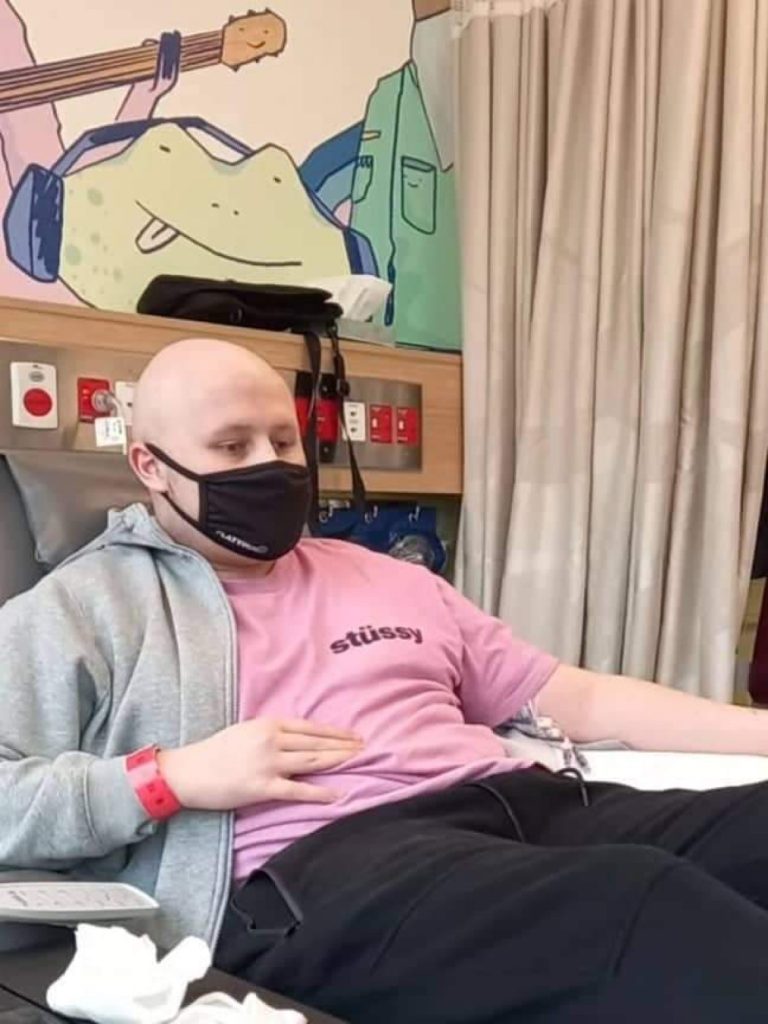
“I asked myself, ‘What is the real reason that I want to do this?’ As soon as it was in my head that no matter which way my health went, I was still helping someone else, I did it.”
Though he had already had a good response to chemotherapy, it is not uncommon for ALL patients to relapse despite this. The trial investigated whether Buzz’s cancer would have a better response and remain in remission if he received a novel combination therapy of chemotherapy and a newly developed immunotherapy drug called blinatumomab, initially delivered through infusions every 72 hours.
“I still look back and think that doing the clinical trial made such a difference to how I came out the other side as a person as a whole,” he said. “Three months after I started treatment, I was put into remission. The effects of the trial kicked in really quickly and made it very worth being a part of.”
Two years later, he is now cancer-free.
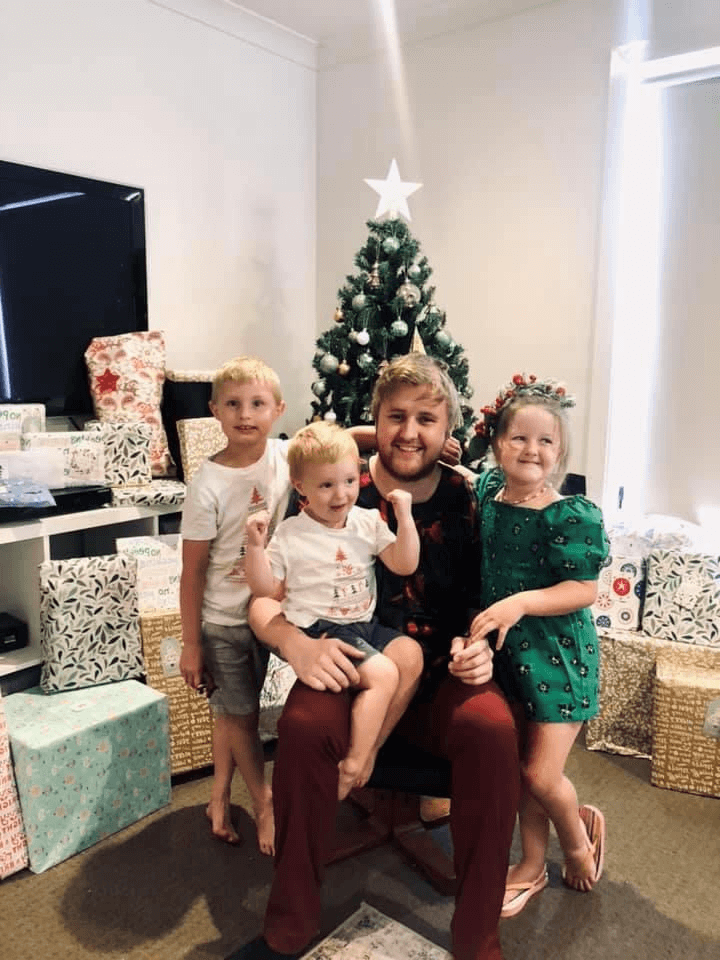
“We were sitting at home that day and I just fell into tears. It was a big chunk of my life and it was finally over. It was comforting knowing that I went about everything in such a positive way. I got involved in so many cool things that help other people affected by cancer, so that was nice.”
Another Lifeline
Because Buzz was high-risk and Victoria was in the midst of a lockdown, he was only allowed one visitor a day for two hours. As a family-oriented person, it felt like “a complete brick wall” not having any interaction with his family and his nieces and nephews. The clinical trials team became a part of his support network and checked in regularly with him to ensure he was in the best condition he could be.
“It was comforting that no matter how hard it was to swallow, I had such a close link with my trials team and the actual study itself. Sometimes I would take the initiative to write down how I was feeling and give that to the researchers.”
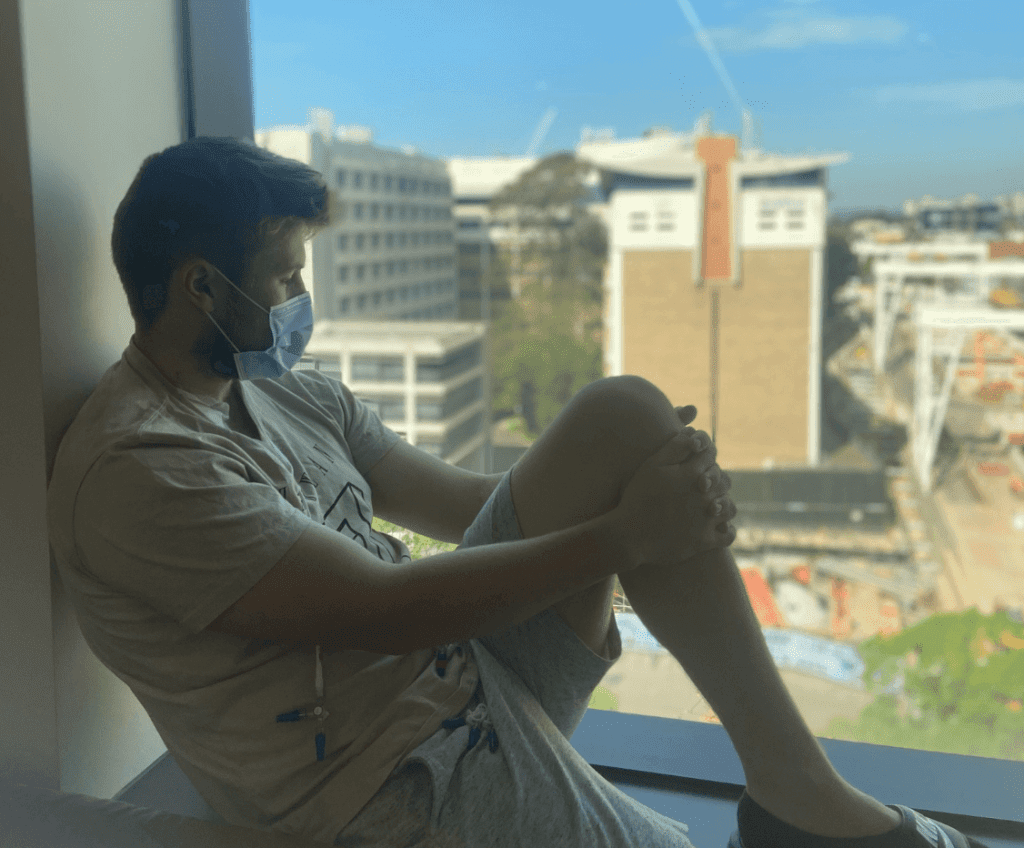
His life-long love for gaming and streaming became another lifeline. Though he had unwittingly drifted away from some of his real-life friendships, his online friends helped him through his dark moments.
“At the time, I was playing Minecraft factions and Warzone on Call of Duty. I don’t think I went a day without someone messaging me, ‘Hey, how you doing today? Are you up for a chat?’
“These were online friends that I’d never met before who were super supportive and always there to rely on for a message. You could just play games and talk. It was just like another treatment and that connection carried through [after the clinical trial was completed].”
Coming Full Circle
Buzz’s experience with acute lymphoblastic leukaemia inspired him to help others by raising awareness of cancer and telling his story. He was drawn to becoming involved with Game On Cancer®, a Cure Cancer gaming initiative that unites the gaming community to raise funds for emerging cancer research.
“I’ve always been in the gaming industry. I was involved in Esports tournaments and building custom PCs. I met my partner, Ash, through GTA, and we saw that the guys at PAX (Australia’s biggest gaming festival) had tweeted about being at Fortress in Melbourne. We rocked up one night and met the PAX and GenerOZity crews. And then through the GenerOZity team, we met the Game On Cancer® team.
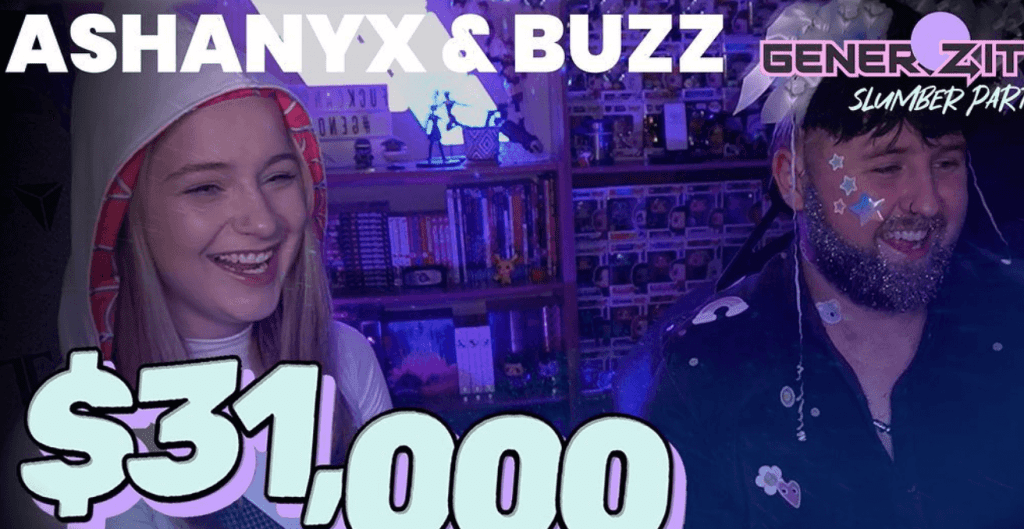
“I think the positive outcomes of gaming are so overlooked. Whether it be watching a streamer that you love and having that sense of community, the escape of becoming someone else in a different world, or the interaction and support from the online friends you make, there’s such a broad spectrum in terms of how gaming can positively affect your mental health during cancer treatment and create positive change.”
Whilst organising a panel for PAX, he invited Dr Ashley Ng, a Principal Investigator from his clinical trial, to be a speaker. To his surprise, Dr Ng told him that Cure Cancer had funded his research at the beginning of his career.
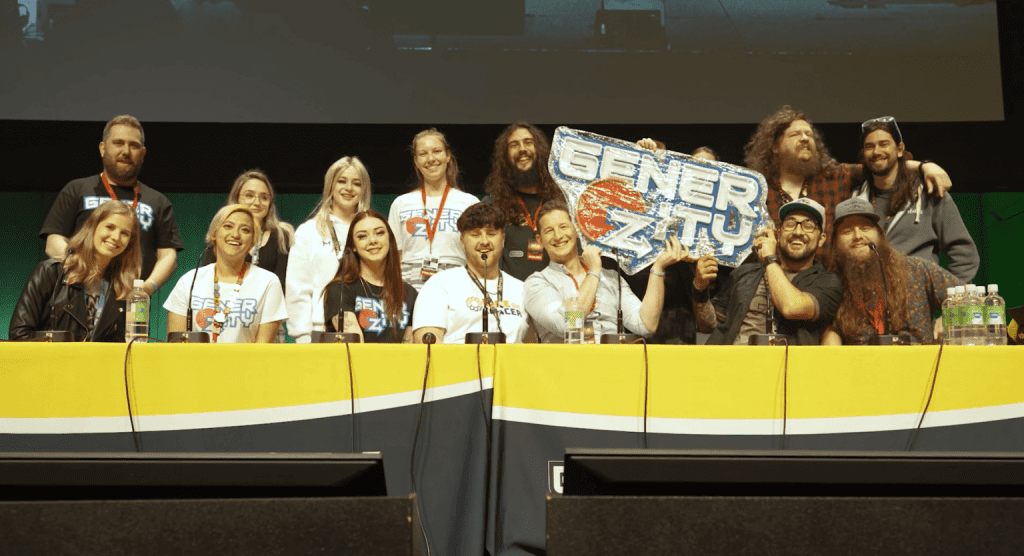
“It was quite surreal and put into perspective how everything was linked. Game on Cancer® was my bridge to the rest of the world on the other side of my treatment and became that connective point of me and my partner being involved in gaming. It also linked in with my story and how this trial helped other people after my treatment.
“Finding out that Dr Ashley was linked to Cure Cancer made it a full circle moment. He was always very supportive and on top of the checkups. Even now, I still get all the phone calls and he asks me, ‘How are you going and is there anything that we can do?’”
Dr Ashley Ng
In 2011, Cure Cancer funded the Melbourne-based haematologist’s research on the connection between the Erg gene found in Down syndrome and the prevention of childhood blood cancer.
Though the clinical trial is not related to that project, Dr Ng says being funded by Cure Cancer was crucial to kick-starting his career.
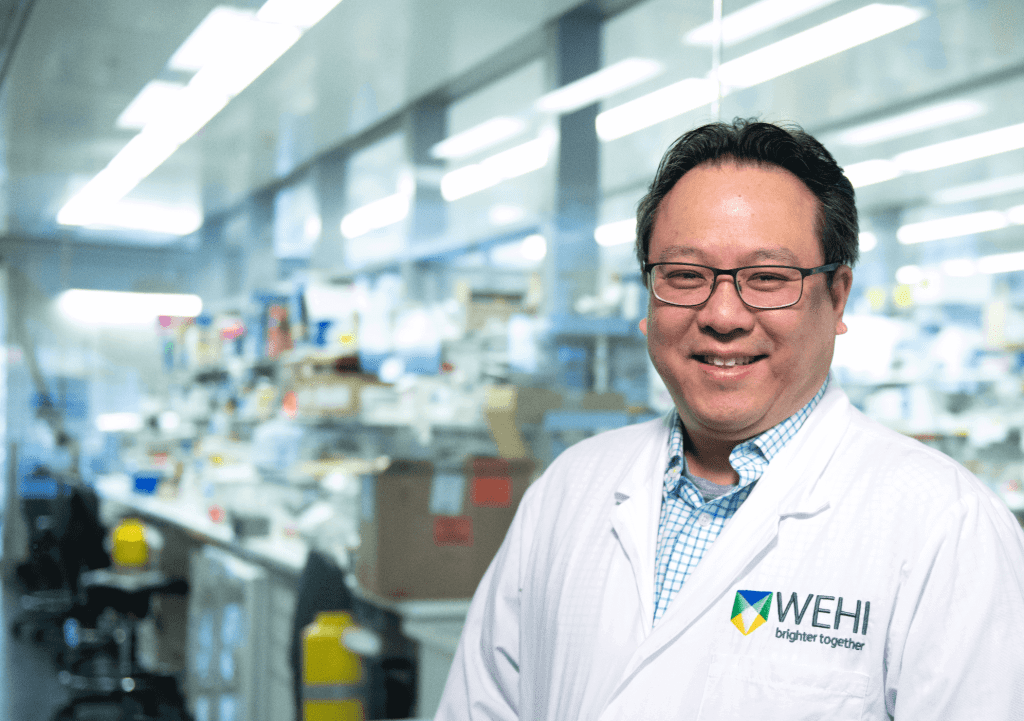
“Without continued funding after a PhD, even the most passionate researchers may be unable to pursue groundbreaking advancements in leukaemia therapy. This research is essential for developing next-generation treatments and pinpointing the most promising ones for clinical trials. Without adequate financial support, these crucial discoveries, which are vital to enhancing patient outcomes, risk being unrealised.”
“Buzz was on a phase 2 trial that was designed by ALLG (The Australasian Leukaemia and Lymphoma Group) and Dr Matthew Greenwood. It can be very overwhelming to get all this information when you’re first diagnosed with a life-threatening illness. The trial treatment for acute lymphoblastic leukaemia in adolescent young adults requires a lot of in-patient admissions, as well as daily admission, but Buzz was fantastic at putting up with us.
“It’s really pleasing that he responded very well to the treatment. What we’ll find, as the evidence comes in from this trial and other trials overseas, is that this type of immunotherapy is going to become part of our standard for therapy for B-cell acute lymphoblastic leukaemia.”We’ll be able to cure a lot more patients with this type of therapy, including patients who have been diagnosed with poor prognosis or aggressive disease, which may not respond well to chemotherapy alone.”
Cancer researchers at the start of their careers face numerous barriers to success, such as limited funding in a highly competitive environment.
Some talented researchers are left with no choice but to abandon their vital work or even to move to other countries where there are more funding opportunities.
Clinical trials like these are years in the making. They begin as bold ideas that envision a brighter future for all of us – bold ideas that scientists like Dr Ashley Ng play a key role in.
“What you’re investing in is shaping Australia’s future and supporting science that will help develop newer therapies and better understanding of this disease. We want to improve patient outcomes and investigate this life-threatening illness, where gains have been made through supporting research, but there’s still a lot to be done.”
– Dr Ashley Ng, 2011 Cure Cancer alumnus
You can make a difference by making a tax-deductible donation towards blood cancer research so that patients like Buzz have a brighter future.
1. Muffly L, Petit K, Stock W. Treating the younger adult with acute lymphoblastic leukemia. Clinical Practice. 2012;9(4):439–49. doi:10.2217/cpr.12.30


